
Sharing Your Testimony of Jesus Christ Through Playing the Organ
Playing the organ is a profound way to share your testimony of Jesus Christ. As an LDS organist, you have a unique opportunity to convey your faith and love for the Savior through your music. Hymns and sacred music can uplift and inspire, touching hearts and minds in ways that words alone cannot. By playing with reverence and feeling, you invite the Holy Spirit to testify of Christ’s love and sacrifice.
The Spiritual Power of Organ Music
Music has always been an integral part of worship. The organ, with its powerful and resonant sound, can evoke deep emotions and spiritual experiences. When you play hymns and sacred music on the organ, you are not just playing notes; you are bearing your testimony through the universal language of music. This can be especially impactful in an LDS setting, where music plays a crucial role in worship services and spiritual gatherings.
Choosing the Right Hymns
Select hymns that resonate with your personal testimony of Jesus Christ. Think about the messages you want to convey and how the hymns reflect those beliefs. For example, hymns like "I Know That My Redeemer Lives" and "Jesus, the Very Thought of Thee" are powerful expressions of faith and devotion. By choosing hymns that speak to your heart, you can more effectively share your testimony through your playing.
Practice with Purpose
Diligent practice is essential to sharing your testimony through music. Practice each hymn until you can play it with confidence and feeling. Focus on the phrasing and dynamics to bring out the emotional depth of the music. Remember, your goal is to bear testimony and invite the Spirit, so practice with the intention of conveying the hymn's message clearly and reverently.
Playing with Reverence
Reverence does not mean playing hymns at a funeral march pace of 60 BPM or lower. Instead, it means playing the hymn according to the text and its intended spirit. For example, "How Firm a Foundation" should be played strong and solid, conveying its message of strength and faith, while "Sweet Hour of Prayer" should be gentle and reflective. Your approach should match the hymn's message to enhance the worship experience effectively.
Basic Registration Tips
Registration refers to the selection of stops on the organ to create different sounds. Here are some basic tips to support your hymn playing:
- Full and Majestic: For hymns like "How Firm a Foundation" that need to be strong and solid, use principal stops and add mixtures for a fuller sound. Consider using the pedal division to add depth.
- Soft and Reflective: For more reflective hymns like "Sweet Hour of Prayer," use softer stops such as flutes and strings. Avoid loud reeds and mixtures to maintain a gentle and contemplative mood.
- Dynamic Variation: Adjust registration for different verses to keep the congregation engaged. Start softly and build up to a fuller sound on the final verse, if appropriate.
Inviting the Holy Spirit
One of the most powerful aspects of playing hymns on the organ is the ability to invite the Holy Spirit. The Spirit can touch hearts and testify of Christ's love and Atonement in ways that go beyond the music itself. As you play, pray for the Spirit to be present and to work through your music to bless and inspire those who listen.
Testimony Through Music
Your music can strengthen others' faith and draw them closer to the Savior. By sharing your testimony through organ music, you are participating in the work of the Lord and helping to build His kingdom. Remember that every note you play is an opportunity to bear witness of Jesus Christ and His gospel.
Practical Tips for LDS Organists
- Select Appropriate Hymns: Choose hymns that reflect your testimony and the messages you wish to convey.
- Practice Diligently: Ensure you can play each hymn with confidence and emotional depth.
- Play with Reverence: Approach your playing with a prayerful heart and a desire to invite the Spirit.
- Seek Feedback: Ask for feedback from your music director or more experienced organists to improve your playing.
- Pray for Guidance: Pray for the Lord’s help in using your music to bear testimony and bless others.
Scriptural Support
The Bible and the Book of Mormon both emphasize the importance of music in worship. Ephesians 5:19 (NIV) encourages us to "speak to one another with psalms, hymns, and songs from the Spirit. Sing and make music from your heart to the Lord." Similarly, in the Book of Mormon, Alma 26:8 says, "Blessed be the name of our God; let us sing to his praise, yea, let us give thanks to his holy name, for he doth work righteousness forever."
Conclusion
Playing the organ is a beautiful way to share your testimony of Jesus Christ. As an LDS organist, you have the privilege of using your musical talents to uplift and inspire others, and to bear witness of the Savior’s love and Atonement. By choosing hymns that reflect your faith, practicing with purpose, and playing with reverence, you can create a powerful spiritual experience for yourself and for the congregation. Let your music be a testimony of Christ’s grace and love
Silent Night Free Sheet Music Canon | Easy Organ Arrangement for Christmas
Away in a Manger Intermediate Piano Solo
Christ the Lord is Risen Today Fanfare | Easter Organ Sheet Music. For Organ, Choir or Congregation
Come Thou Fount of Every Blessing Organ Solo – A Powerful and Timeless Arrangement
View Comments
Leave a Comment
No comments



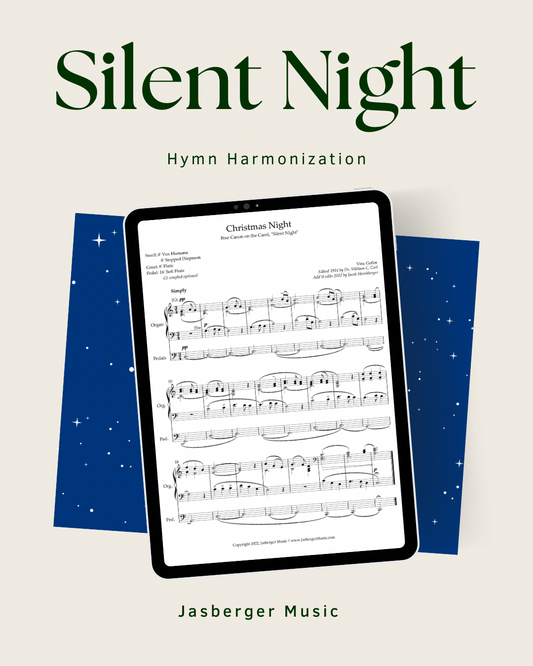
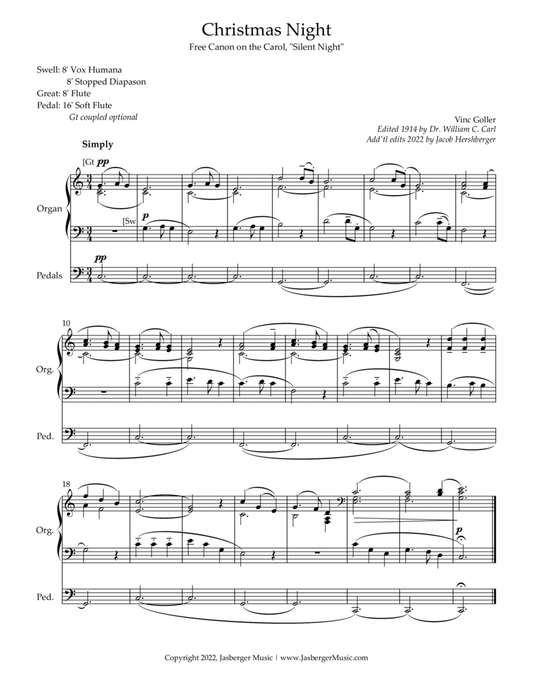
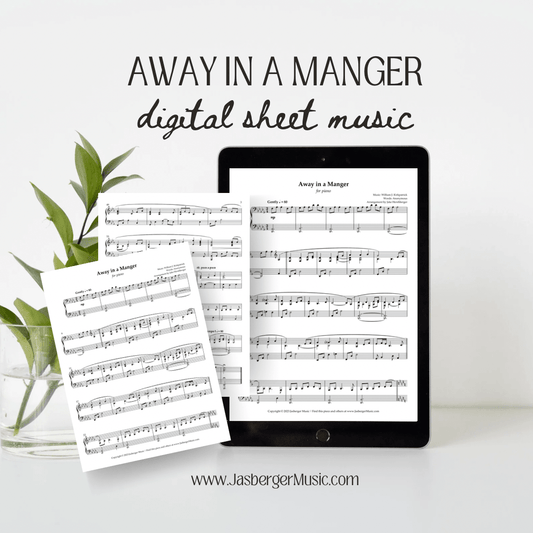
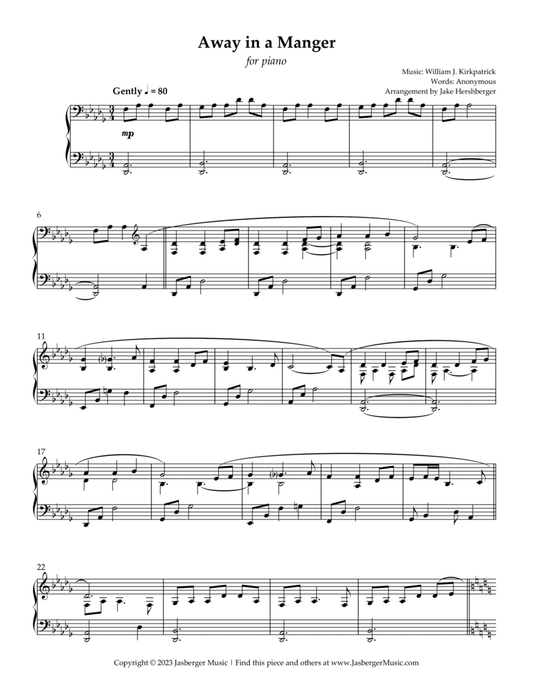
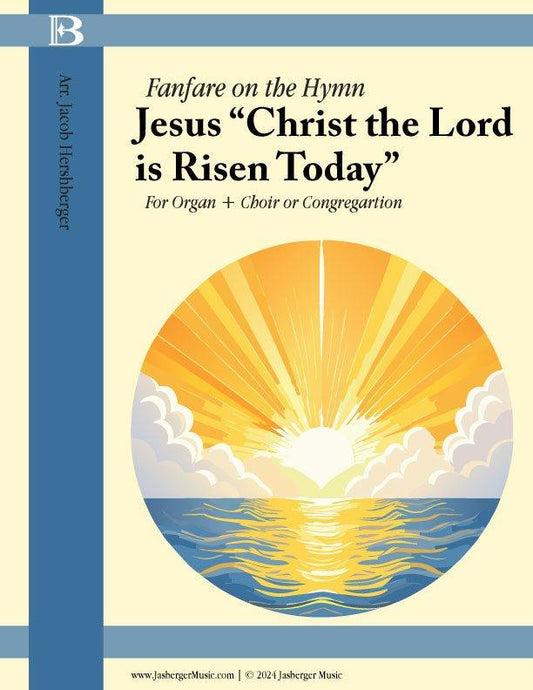
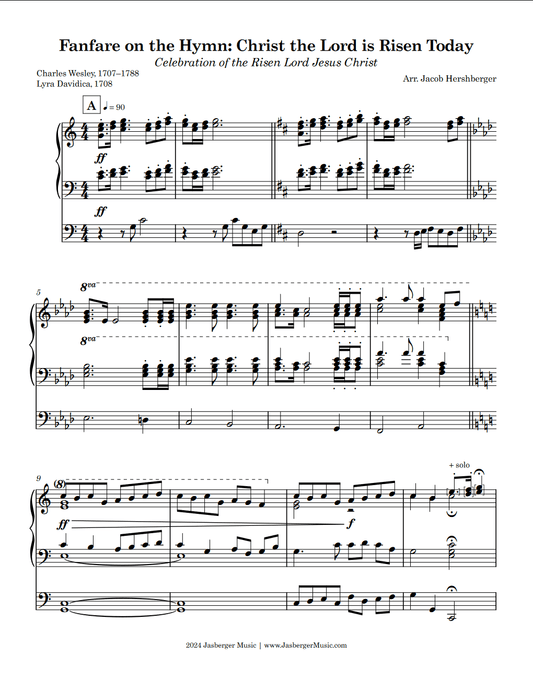
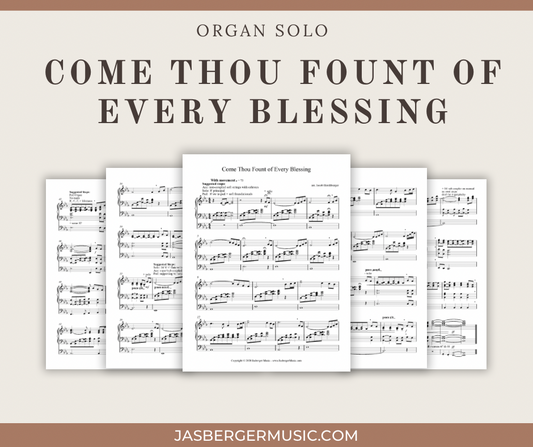
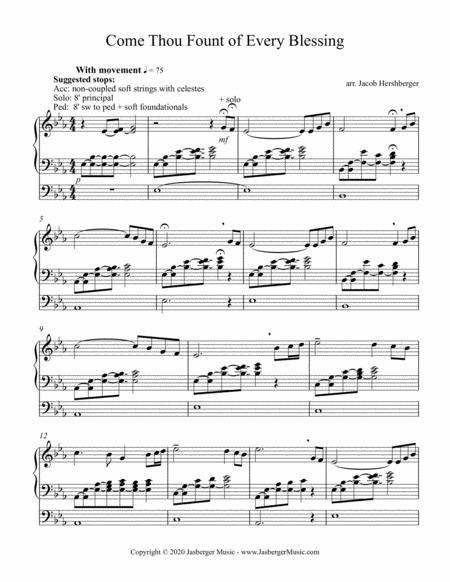

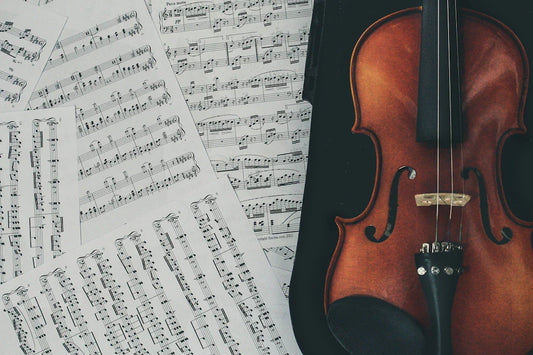
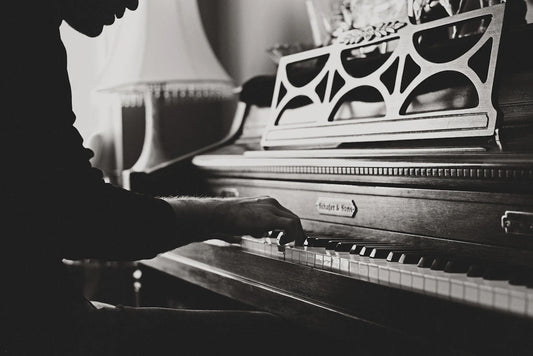

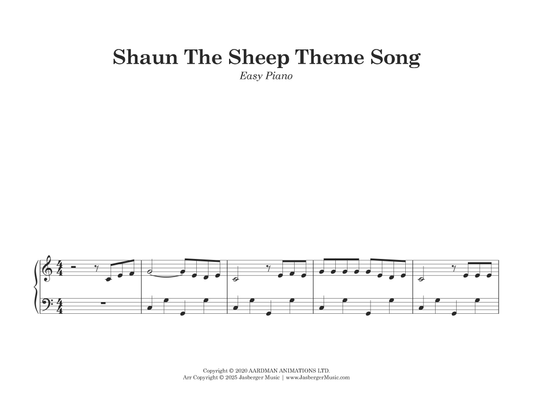
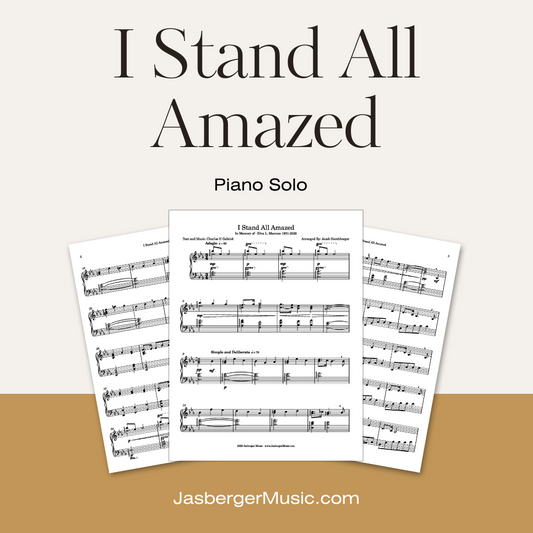
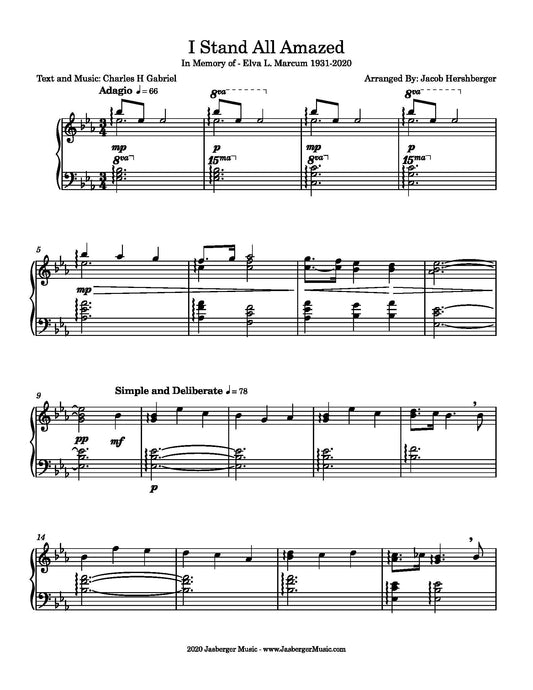
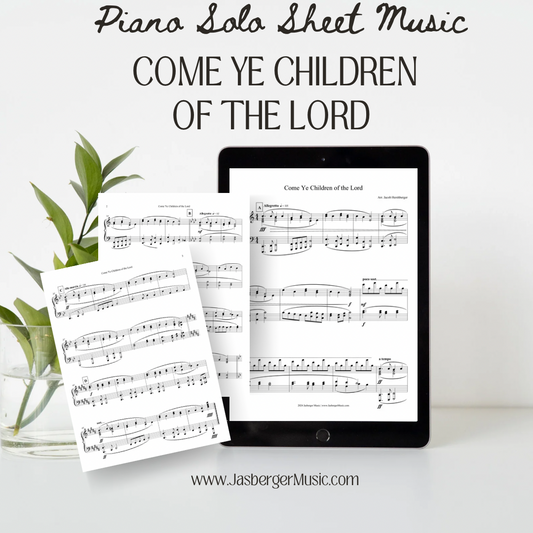
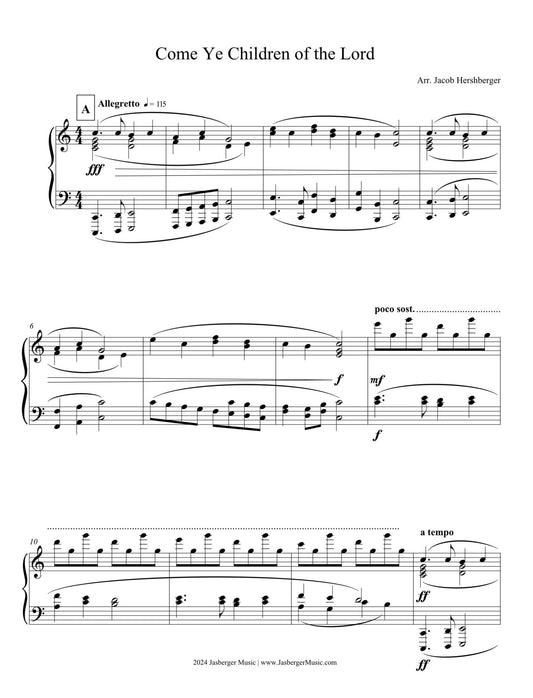
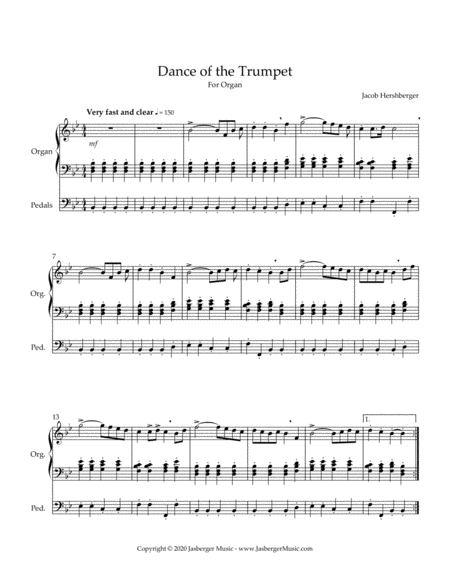
comments